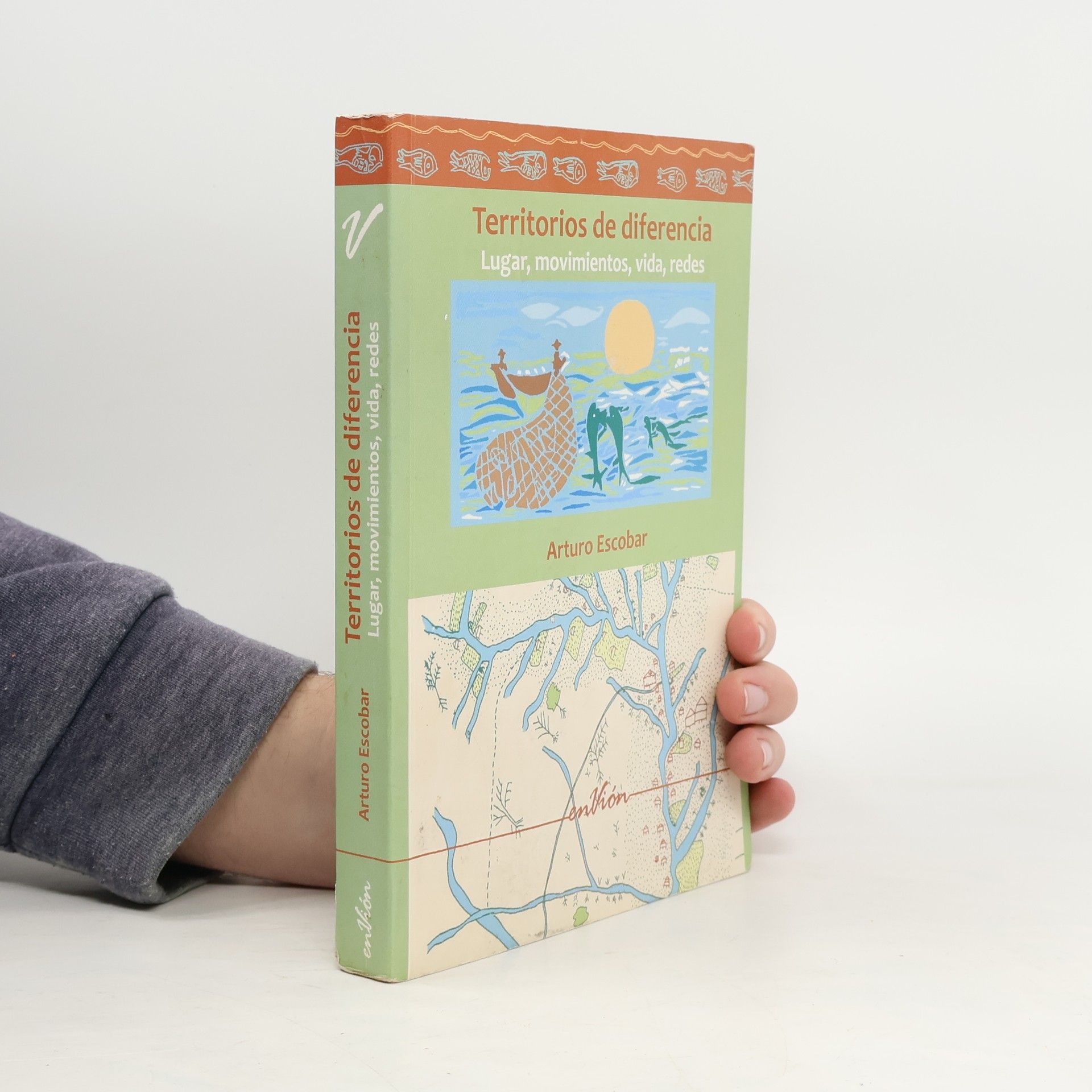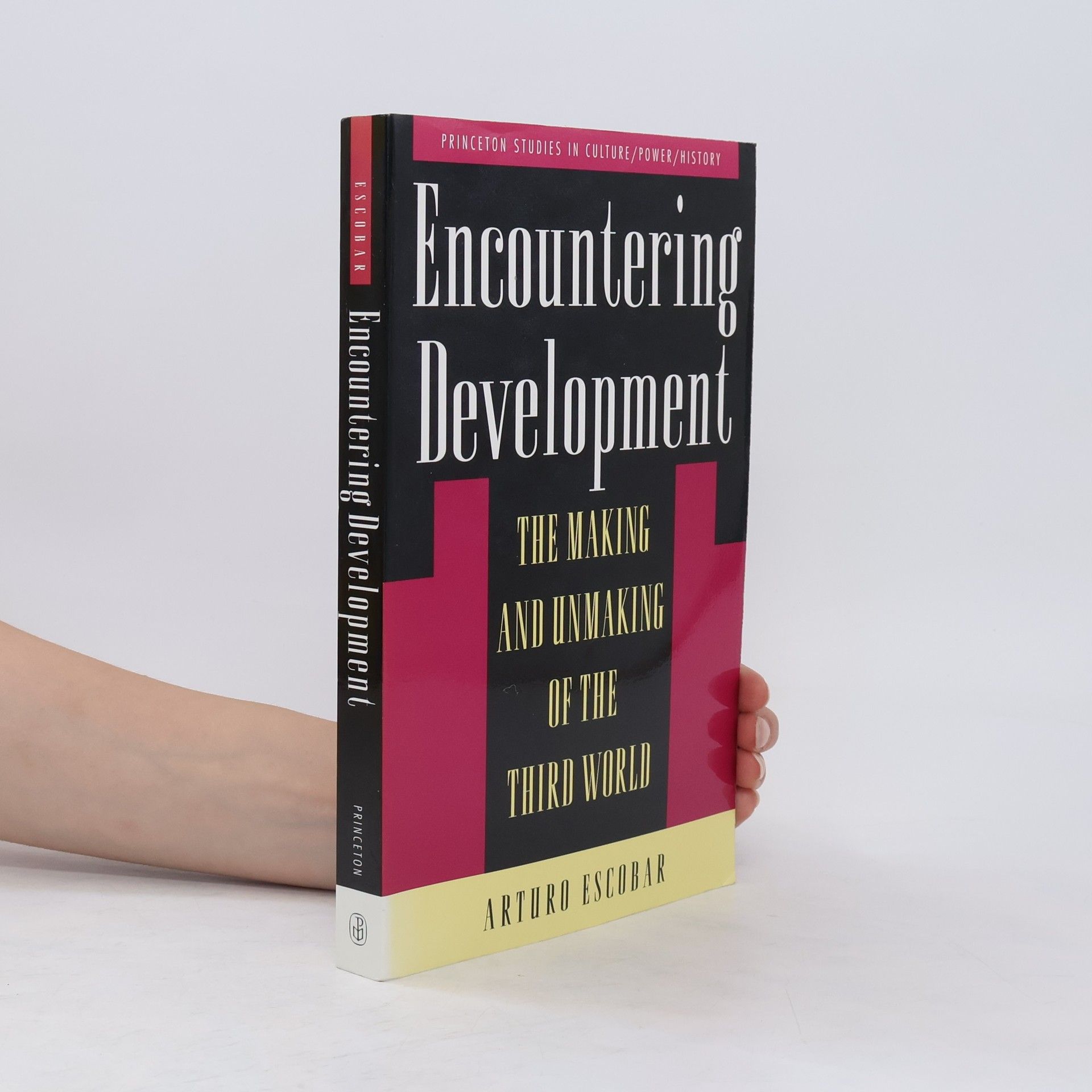Arturo Escobar presents a new vision of design theory by arguing for the creation of what he calls autonomous design-a design practice aimed at channeling design's world-making capacity toward ways of being and doing that are deeply attuned to justice and the Earth.
Arturo Escobar Bücher
Arturo Escobar ist ein Anthropologe, der sich mit Theorien des Seins und des Körpers sowie mit Theorien über Gesellschaft und Politik beschäftigt. Seine Arbeit zeichnet sich durch ein tiefes Interesse daran aus, wie Körper und Sein mit politischen und sozialen Prozessen interagieren. Escobar untersucht gesellschaftlichen Wandel durch eine kritische Analyse von Politiken und sozialen Bewegungen.






Pluriversal Politics
- 232 Seiten
- 9 Lesestunden
Reflecting on the experience, philosophy, and practice of Latin American indigenous and Afro-descendant activist-intellectuals who mobilize to defend their territories from large-scale extraction, Arturo Escobar shows how the key to addressing planetary crises is the creation of the pluriverse-a world of many epistemological and ontological worlds.
Relationality
- 232 Seiten
- 9 Lesestunden
This important new book argues that at the root of the contemporary crisis of climate, energy, food, inequality, and meaning is a certain core presupposition that structures the ways in which we live, think, act and design: the assumption of dualism, or the fundamental separateness of things. The authors contend that the key to constructing livable worlds lies in the cultivation of ways of knowing and acting based on a profound awareness of the fundamental interdependence of everything that exists – what they refer to as relationality. This shift in paradigm is necessary for healing our bodies, ecosystems, cities, and the planet at large. The book follows two interwoven threads of argumentation: on the one hand, it explains and exemplifies the modes of operation and the dire consequences of non-relational living; on the other, it elucidates the nature of relationality and explores how it is embodied in transformative practices in multiple spheres of life. The authors provide an instructive account of the philosophical, scientific, social, and political sources of relational theory and action, with the aim of illuminating the transition from living within seemingly ineluctable 'toxic loops' of unrelational living (based on ontological dualism), to living within 'relational weaves' which we might co-create with multiple human and nonhuman others.
Encountering Development
The Making and Unmaking of the Third World
How did the industrialized nations of North America and Europe come to be seen as the appropriate models for post-World War II societies in Asia, Africa, and Latin America? How did the postwar discourse on development actually create the so-called Third World? And what will happen when development ideology collapses? To answer these questions, Arturo Escobar shows how development policies became mechanisms of control that were just as pervasive and effective as their colonial counterparts. The development apparatus generated categories powerful enough to shape the thinking even of its occasional critics while poverty and hunger became widespread. Development was not even partially deconstructed until the 1980s, when new tools for analyzing the representation of social reality were applied to specific Third World cases. Here Escobar deploys these new techniques in a provocative analysis of development discourse and practice in general, concluding with a discussion of alternative visions for a postdevelopment era.Escobar emphasizes the role of economists in development discourse--his case study of Colombia demonstrates that the economization of food resulted in ambitious plans, and more hunger. To depict the production of knowledge and power in other development fields, the author shows how peasants, women, and nature became objects of knowledge and targets of power under the gaze of experts.
Analyzes the politics of difference enacted by specific place-based ethnic and environmental movements in the context of neoliberal globalization. This book offers an ethnographic account of Proceso de Comunidades Negras (PCN's) visions, strategies, and practices, and chronicles and analyzes the movement's struggles for autonomy, and territory.